|
Taylor recently had the opportunity to interview two PixelHacks (pixelhacks.com) organizers, Catherine and Tanupa. Learn more about them below, and read the transcript of the interview to learn more about PixelHacks and get advice for starting your own hackathon! 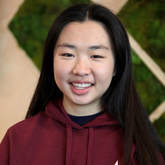 Catherine Yeo is a senior at Stanford University Online High School. A 2015 Stanford AI4ALL attendee and 2017 She++ #include Fellow, Catherine founded and directed PixelHacks from 2016-18. Passionate about math and computer science, she has conducted number theory research and is currently doing research on applying AI to math education. Catherine hopes to continue spreading joy and increasing interest in the two fields while increasing diversity in STEM. 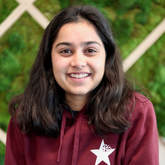 Tanupa Thaker is a junior at Cupertino High School. An outgoing and curious individual, her interest in STEM began somewhere around her freshman year of high school after being exposed to hackathons and different programming languages. She served as the Sponsorship Director for PixelHacks II and will be in charge of heading PixelHacks III, while also currently organizing TinoHacks II. Her goal is to portray how diverse STEM is and its application in every aspect. Tell me more about what PixelHacks is and how it went: C: PixelHacks has been ongoing for 2 years. It was founded in 2016 as the Bay Area’s first all-female high school hackathon, as well as being student run. We held one event in January 2017 and one this year in January 2018. 75 people attended our first event, and 120 attended the past one. We want to expose programming and technology to high school women who don’t really know how to program or have never done a hackathon before. We bring in mentors from the industry, and have workshops. It's like a two-day overnight event, lasting 24 hours, and it’s free. Attendees build their own project, which is called hacking, and then present it to judges at the end to win prizes. PixelHacks II was on a much larger scale. T: Overall I think the event went really well, it was really amazing to see so many girls come in and you could sort of feel that some of them didn’t have very much experience, and then at the end you could see how much they had grown and how much they were able to learn. I think it was a big realization for many of them, they were like, “Wow I didn’t realize I would be able to actually create such an amazing app.” The experience itself was really fun for me and I hope for the participants as well. We tried to have constant food and swag, to keep everyone engaged the whole time and make sure everybody was having a great time. Why did you start or decide to work with PixelHacks? C: Part of it was that I’ve been to a few hackathons and they were really male dominated. When I went to the Apple Worldwide Developers Conference, it was so male dominated. As an illustration, this was the only time you could see the bathroom lines were all male and the women’s bathrooms were empty. I definitely wanted to create something to help expose girls in my own community, especially young women, because you can still reach them in high school. I wanted to do an initiative to spread my love for technology in a fun way, and hackathons are really fun and creative, they're something that's short and memorable. T: I'd been to two or three hackathons and I definitely noticed that they were mostly male. In one of my hackathons, 3 of my team members were male and I was the only female, so it felt a little bit weird to me. I’ve known Catherine for a long time and I found out that she was organizing PixelHacks. I’d never organized a hackathon before, but it looked like a really fun experience. I was like “Okay, I’ve been on the side where I create my own application, now I want to be on the side where I organize it.” Overall I’m really glad that I chose to do that. How did you assemble your team and contact mentors and sponsors to support PixelHacks? C: I found Tanupa because I’ve known her in different setting, and she was really enthusiastic and passionate about organizing a hackathon for girls especially. The others I essentially met through a jumble of organizations: Girls Teaching Girls to Code, she++, and NCWIT. I knew all these members were passionate about contributing back to the community. For mentors and panelists, a lot of it was reaching out either to specific companies or on Facebook, in Ladies Storm Hackathons. A lot of networks and connections helped, some mentors referred me to other mentors to hold workshops or speak on the panel. T: For sponsorship, a lot of the resources were from last year and I’m really glad for that, and being my first time in a hackathon I wasn’t exactly sure what was expected of me. We email them and if they reply we follow up with interviews or keep talking with them and get the sponsorship information. Some companies that we got sponsorships from were places that I thought of. It can be anything as simple as, for example, Hi-Chew, which was one of our sponsors. I was thinking, “What if they sponsored us?” There’s no harm in trying. I was really outgoing in the sense that I would ask a lot of companies that I wouldn’t expect to reply to me and we would actually end up getting their sponsorship. It was really great knowing that you were able to find a company. What were some of the winning projects or your personal favorites? C: From PixelHacks I, there was one project that was a scheduling app for autistic children, and I was blown away by what they made. Another one was a really advanced computer vision app to track environmental progress or carbon footprint, I thought that was interesting. From PixelHacks II, the winning project was an Android app that brought awareness and support to the hurricane disasters in Puerto Rico. That was a really really cool project, and I was definitely really impressed. Another one that won one of the higher prizes was an iOS app that helped reduce food waste across the country. So a lot of projects aimed at solving community problems, they were really interesting and how they approached it was cool. T: Honestly, I can’t really choose one, because all of them were so amazing. Every single one of them I was like, “Wow I would never have thought of that.” Everybody is different and because of that everybody is able to come up with a different idea, and it’s really cool because you find ideas from the whole spectrum. So for me I think all of them were really amazing. C: I definitely agree. I remember in our post-event survey a lot of the girls were like, “Wow, I was so inspired watching and hearing about everyone else’s projects.” You gain a lot of ideas and inspiration from that as well. What did you feel was the best part of either organizing the event or having the event? T: For me, the biggest part was seeing it all come together. I’d been working on sponsorship for more than 8 months and I finally saw it being put into effect and saw the smiles on those girls’ faces. It would be something as simple as ordering In-N-Out and see them be so happy and excited. The smallest things would bring me so much joy. Also, I think it was a great bonding experience with my team because when you spend 24 hours with someone you learn a lot about them, and you also learn a lot about other people because everyone is always coming and asking you questions. I think just being able to interact with so many girls and hearing all their ideas was really cool. C: For the first year, just seeing the girls walk in at opening ceremony, after two hours of panicking about the event, it was really cool that it’s actually all happening. Another moment was when I saw some girls who have been struggling on some part of a project for a really long time, when they finally have a breakthrough and build something incredible and fix their problem, how their eyes light up once they get it. That’s always been a really special moment for me. That’s from an organizer perspective. From a general perspective, I really enjoyed the women in tech panel at PixelHacks II, I thought it was really incredible to hear from industry women’s perspectives and career journeys in tech and I thought a lot of the attendees were really inspired by that too. Do you have any advice for others who may want to organize their own hackathon? C: For a hackathon, there are definitely a lot of resources out there, the hackathon organizing community is really big, especially on Facebook and Major League Hacking, there’s a lot of people willing to help and when we were organizing we definitely asked for a lot of help from other former organizers. Don’t be afraid to reach out, and try a lot of things, like when Tanupa contacted and got a sponsorship from Hi-Chew, and a lot of other places where it’s like, “Woah that is so cool, I never would have thought of it,” and they don’t seem like companies that would support you but you don’t know until you try. Definitely try a lot of things and start early and have a concrete plan. Stay detailed, because there are so many things you need to keep track of throughout the process. For an all-female initiative, it doesn’t have to be a hackathon, try to remember who your audience is and how you might help them the most. T: First off, it’s a lot of work, but there are so many people out there who are willing to help you. You don’t know who you’ll run into, they’ll be like, “Oh sure, I can help you with that,” and you’re like, “Wow my job just got so much easier.” Definitely rely on your other team members and really respect them and understand how hard each of their jobs are, because communication between team members needs to be really well for the whole program to work. And yeah, just have fun in the whole process, because it you make it fun, it’s definitely going to be easier. What are some of your future plans for PixelHacks or in related fields? C: I will be graduating and plan to pass off the role of director to Tanupa next year T: My plan is to reach out to more girls, I definitely think we could’ve gotten so many more girls. One thing I’m really proud of this year is how well the hackathon went, because a lot of the way we get more people to come is through word of mouth and friends, and we got a lot of positive feedback from this year's hackathon so I’m hoping that will help us with next year. I also want to make our workshops better for first time coders, and have something so that people who are coming for their first time get the help that they need and know where to start. We have a couple ideas for that. Most of the stuff we did this year I really enjoyed and I think would be good for next year. C: More people, more beginner oriented. I was talking to the outreach director, this year we reached out to a lot of charter schools and low income communities, and we hope to do that at a larger scale in the future. Congratulations to the PixelHacks team for running such a successful and impactful event, and thanks to Catherine and Tanupa for chatting with us about your initiative! If you're interested in PixelHacks III, be sure to reach out to them and see if you can attend. Follow them at their contact info below:
Website: http://www.pixelhacks.com/ Facbook: https://www.facebook.com/PixelHacksCA/ Twitter: www.twitter.com/Go_PixelHacks Instagram: www.instagram.com/PixelHacksCA
0 Comments
Check out EduSTEM, an awesome initiative from WA (edusteminitiative.weebly.com). Archika Dogra, one of our friends from SAILORS (learn more about SAILORS at our post here), was awesome enough to write this guest post for us. We're so happy to be partnering with them! Read on to learn about their initiative. About Us: Founded by three girls from various STEM backgrounds, we all had come to one consensus. STEM was dominated by Caucasian or Asian males, and it didn’t take statistics or numbers to notice that. In our CTE electives, STEM summer programs, robotics teams, and science clubs, we felt increasingly alienated- and resolved that we would attempt to change the environment around us. Thus, we founded the EduSTEM Initiative. It started off as a morning workshop every week with 5 kids, and has grown to impact over 100 youths in just over a year. Along the journey we have reached out to ethnic, socioeconomic, and gender minorities across the Greater Seattle Area and even further out. EduSTEM is currently run by Archika, Evelyn, and Maya, from Bellevue, WA, along with our numerous volunteers and chapter leaders. EduSTEM is a proud partner of Greater Seattle Area non-profit Jubilee REACH, a community outreach organization. At the Jubilee REACH headquarters, EduSTEM has held over 20 small-scale workshops for socioeconomic minorities in STEM. EduSTEM has also partnered with Youth Service America & Disney to expand the impact of the initiative, winning a monetary grant in 2017. EduSTEM has been featured in multiple AI4All articles, and is proud to have begun establishing chapters across the nation. Our end goal is that we aspire to hold and expand both small and large-scale workshops targeting such minorities in STEM, to not just help change the STEM demographic of a single area, but the entire workforce. Event Highlight: On January 15th, 2018 EduSTEM held the first annual EduSTEM Girls Day catered towards girls in 3rd through 5th grade. The event was completely free, featuring speakers from companies like Boeing, along with three rotations focusing on robotics, coding, and lab sciences. The girls came away designing a path-following robot, coding their own Magic 8 Ball, and solving the mystery of a stolen dog with chromatography and blood-sampling techniques. We were booked completely with over 60 attendees from girls all over Washington, some coming from over 2 hours away! All in all, it was a fun day exploring new careers in STEM, discussing STEM inclusivity, and listening to inspiring speakers. We have also continued 2018 with our workshops at Jubilee REACH, focusing primarily on CS in Python and JavaScript, along with fun experiments exploring biochemistry and environmental sciences. Future Plans:
In the future, EduSTEM hopes to continue expanding their impact across the country! We’re currently looking for new chapters to open. Not only that, but we hope to continue partnering with national organizations and initiatives to hold not only larger workshops, but more workshops. On top of the workshop model, we’re currently developing new creative solutions for STEM involvement and further community outreach. Even more exciting, this summer EduSTEM will be showcased at an international conference for community problem solving, perhaps one of the most exciting parts of our developing initiative. We’ve being growing the number of volunteers, demographics, and youth that our initiative has reached out to and are super excited to continue this trend! We're really excited to announce our next partnership is with STEAM TEAM! Ritik Sinha has written a wonderful guest post for us. Read on to learn more about their awesome initiative! (Also be sure to check them out at steamfs.org, screenshot below) About Us: STEAM team is an organization whose aims are to give children across the Bay Area an equal opportunity at a sciences and arts education. A few students in high school, all current sophomores in high school, noticed that students in their district had many excellent programs in STEAM subjects, but these same opportunities were not available to most students in the Bay Area outside of her school district. Upon noticing that research showed children turned down the idea of pursuing a STEAM career as early as third grade, members of the team wanted to instill a passion for STEAM into elementary school children. Most importantly, we hope to soon change the minority and gender gap in science, technology, engineering, arts, and math - by giving students in schools who request it the opportunity to learn STEAM topics beyond the classroom environment. What We Do: In this organization, high school teachers go to a school every two weeks to teach concepts in math, physics, biology, engineering, art, and technology. The team teaches third through fifth graders in elementary schools. Our idea is that any school who requests us to teach will be able to have their students learn about topics in STEAM that will spark an interest in them. Our carefully created curriculum involves creative, thought provoking experiments, and our teachers include only experienced and extremely capable high school students that are passionate about STEAM and who care about the impact they are making on communities. One of our key goals is to continue to grow our team, as well as the number of students who go through our program. To do this, we frequently advertise. We update our public website often, at steamfs.org, and this site is where people are able to make a request for us to teach at their school. On this site we also allow students to apply for a position on our team. In addition to using our website to advertise, we also occasionally use school announcements at our local high school as a way to expand our team. This helps us gain team members who are passionate about STEAM have received a similar education to us - so are competent to teach. Additionally, we ask local news sources to feature us. This particular method is effective in both gaining team members and especially letting schools know about our program. Outcomes So far, we have been quite successful. In the first semester of the 2017-2018 school year, we have had about 60 students pass through the program. Of these students, 37% were Hispanic/Latino, 10% were African American, and 18% were Asian/Pacific Islanders. As we see here, a majority of the students who participated in the program were minorities. As we continue with our program, we hope to see similar success, if not better. Future Plans
As our team continues to grow, we usually think about our future plans. We hope to continue visiting new elementary schools, especially those who request it. We hope to also serve schools that are in areas without as much STEAM funding so that we can provide students in these areas with a STEAM education that they do not have current access to. To make this goal feasible, we also hope to expand our team in order to be able to go to more schools. Author: Ritik Sinha We're so excited to partner with Girls in TE! Sarah and Cindy have been awesome enough to write a blog post about their outreach event. About Us This past summer, Ms. Sarah Chun attended the Stanford Artificial Intelligence Laboratory Research program and had the unique experience of creating a poverty detecting computer-vision algorithm in regards to Mapping Poverty in Uganda based on features extracted from Google Satellite Images. Ms. Cindy Xie is an award-winning graphic designer and has competed in multiple hackathons across the nation. Together, they hope to bring Girls In TE to their home in Ontario, Canada in order to encourage local girls to pursue the future field of computer science and engineering. Girls in TE Girls in TE is a growing organization that is based in London, Ontario to fill the need for gender diversity programs in technology and engineering within our city. Although our organization is quite young, our founders have great expertise in the area of gender diversity initiatives in technology and engineering. Inspiration Through attending different STEM-outreach events all throughout Canada, Girls in TE realized that there weren’t many technology opportunities for high school girls specifically in Ontario. Ms. Chun is also a mentor at Ladies Learning Code, where most opportunities were geared towards children (ages K-8) and young professionals (18+). So, we decided to fill in this gap by creating a non-profit organization that is dedicated to encouraging high school girls to pursue TE careers. Our inaugural event: the Girls in TE Career Talk On December 5th, Girls in TE hosted its inaugural event for high school girls throughout Ontario called the Girls in TE Career Talk. We invited six inspirational women from the fields of technology and engineering to talk about their career passages as a woman in TE. We decided to make the Girls in TE Career Talk as our first event to inform high school girls about the careers of TE. Through a Coding Conversation and a Q&A, girls were successfully informed. Girls in TE was featured on a local talk show in London, Ontario called RogersTV and on FMX, a radio station. Girls in TE is different because it is made for high school girls. While there are many STEM initiatives, there aren’t many for high schoolers, which is an extremely critical time in one’s life. It’s the time for one to make life-changing decisions. Our purpose is to inspire girls to pursue careers in TE. Outcomes The event was an incredible success, thanks to our community partners and Girls in TE’s event volunteers & coordinators. Our keynote speaker, Dr. Cecile Freeman, a Google Software Engineer, who inspired the high school girls with reasons why we need more women in the technology and engineering fields. As event organizers, we learned that high school girls in London feel that they want more opportunities for them to develop technical skills that would help them in their career. Future plans After our inaugural event, the executive team at Girls in TE are planning a yearly schedule of intensive events catered for high school girls, all across Ontario, Canada. Our collaborations with community organizations include Google, 3M, and GoodNeighbours Canada. We hope to host many technical workshops (Java, Python, 3-D Printing, and Robotics), Hackathons, Field Trips to Tech Company Headquarters, and of course our annual Career Talk. Thanks again to Girls in TE. We're looking forward to many more exciting events!
|
Archives
March 2019
Categories |
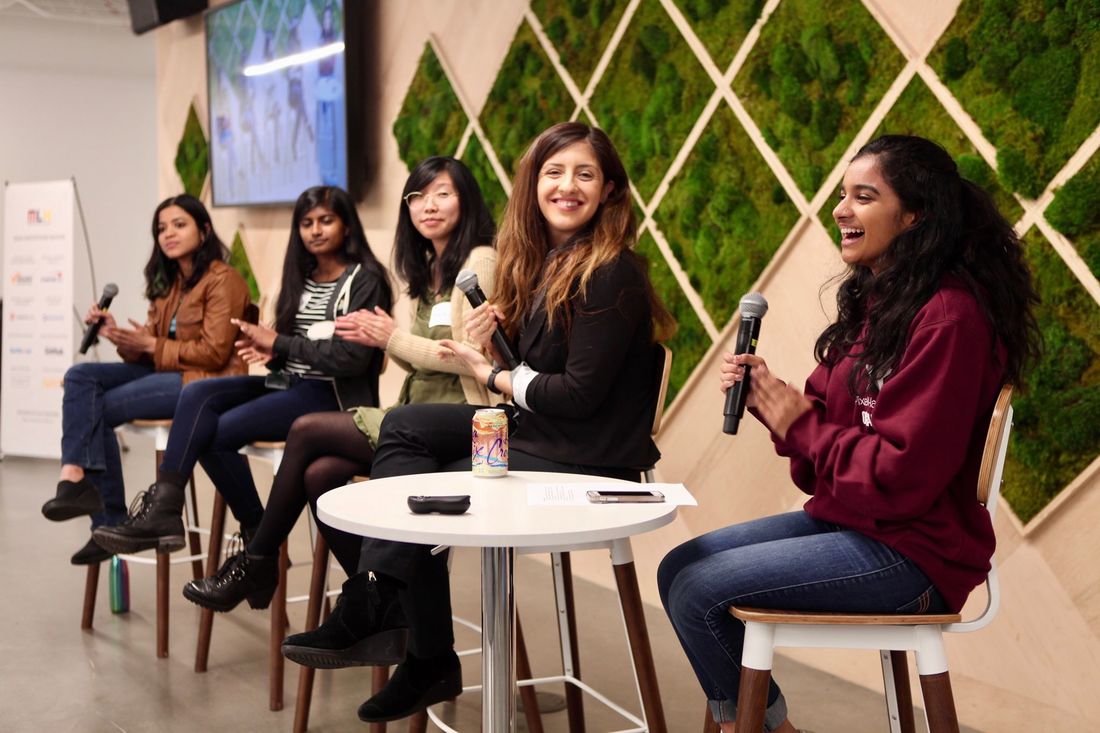
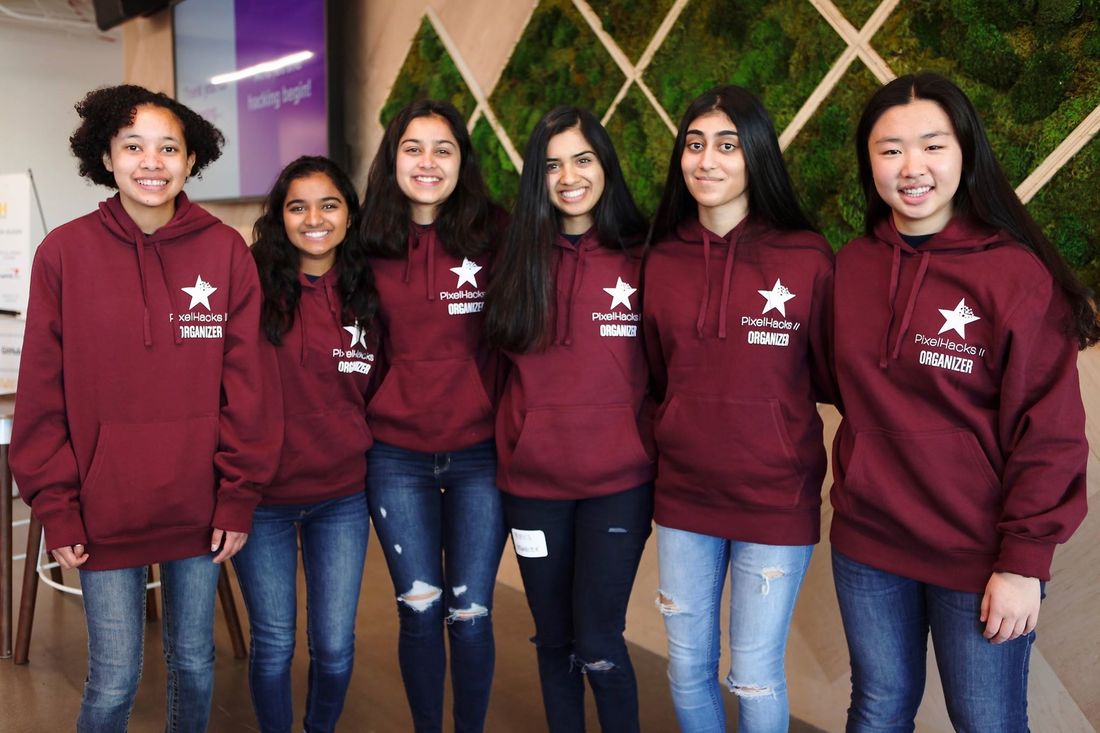
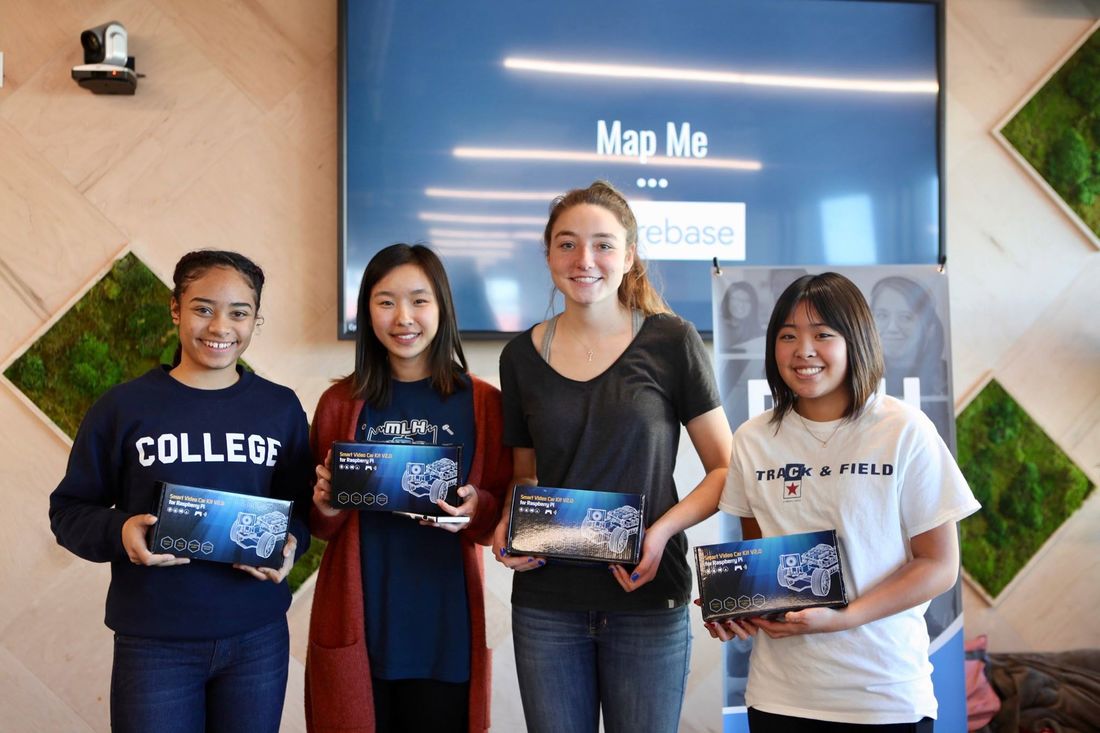
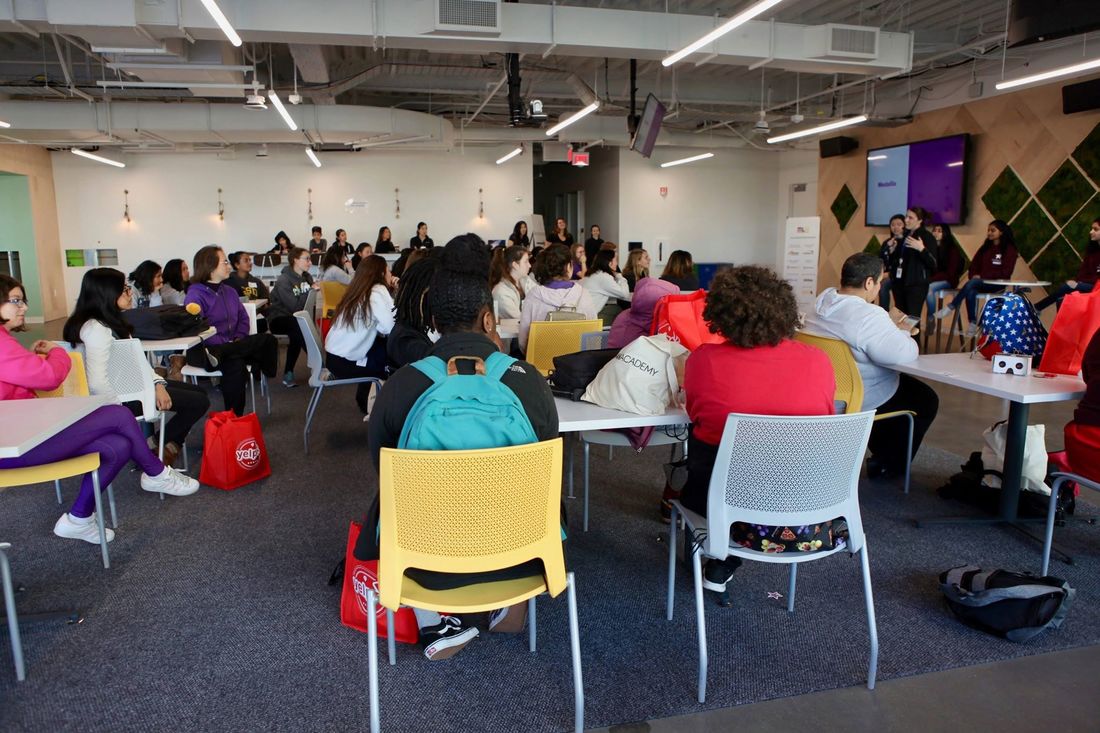
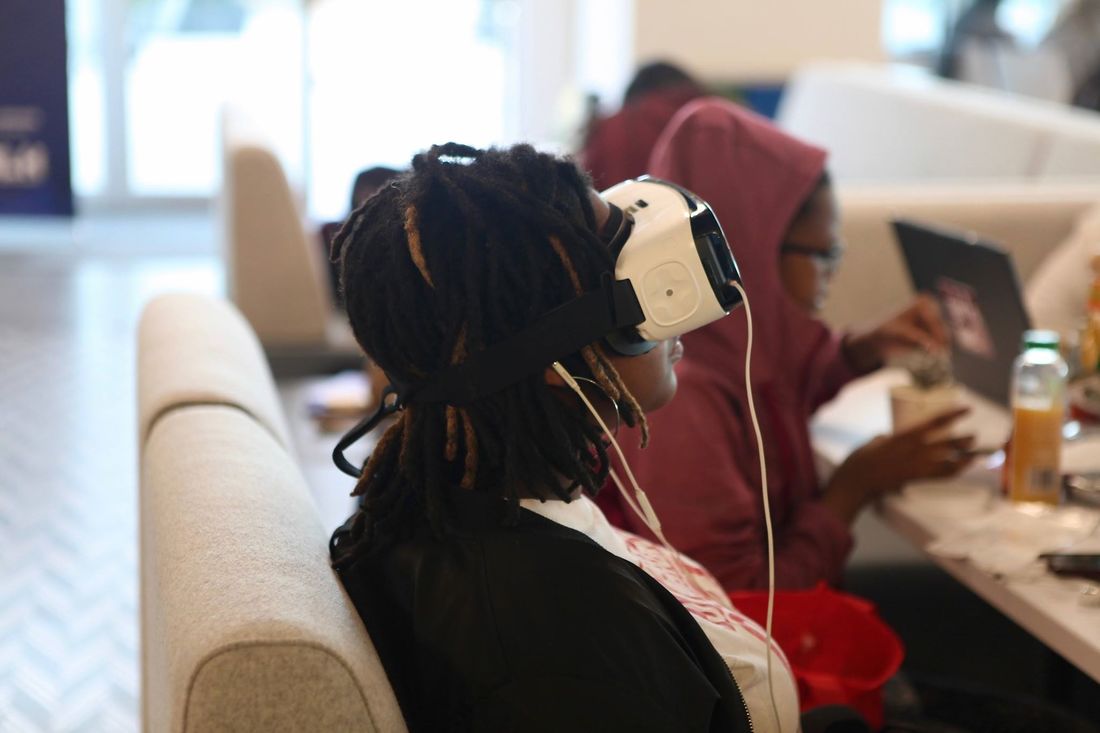
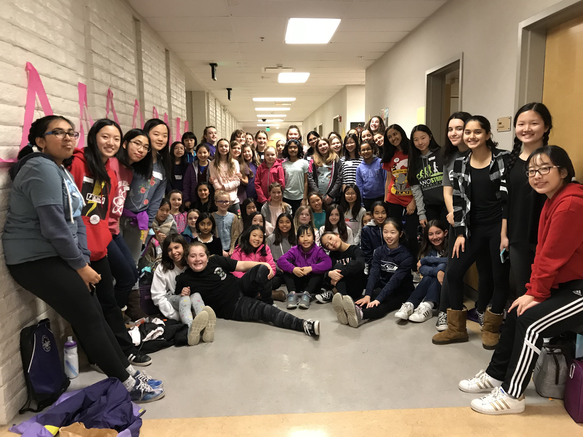
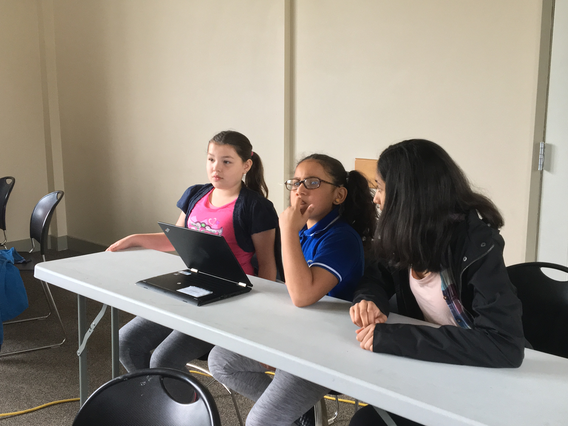
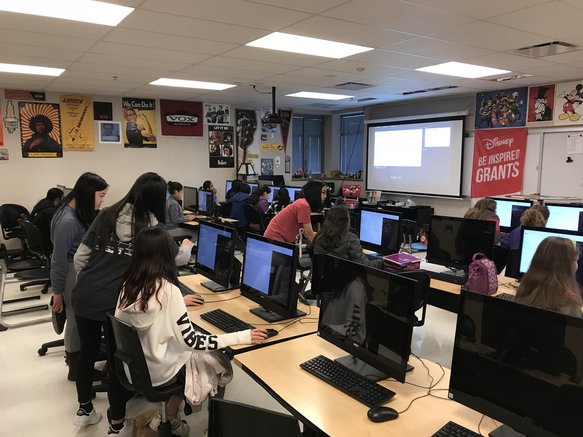
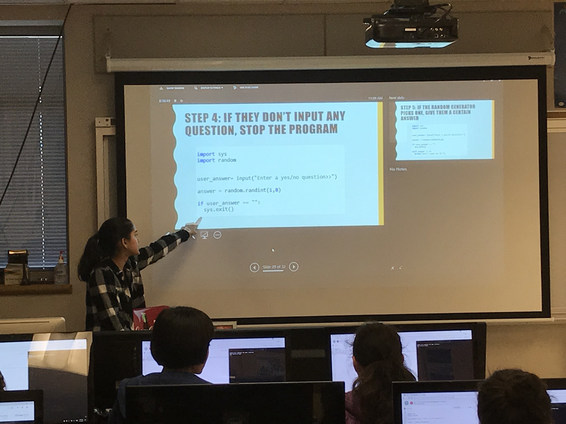
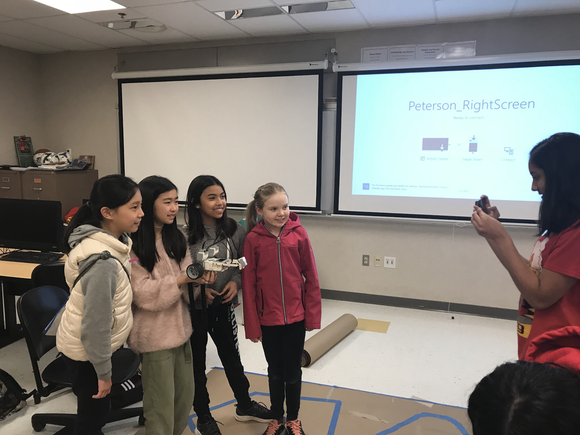
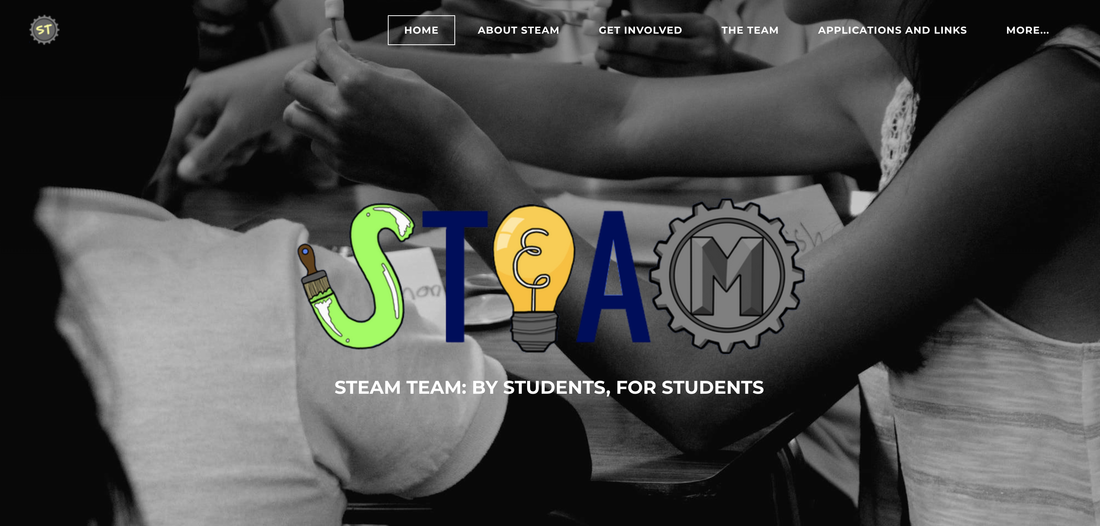
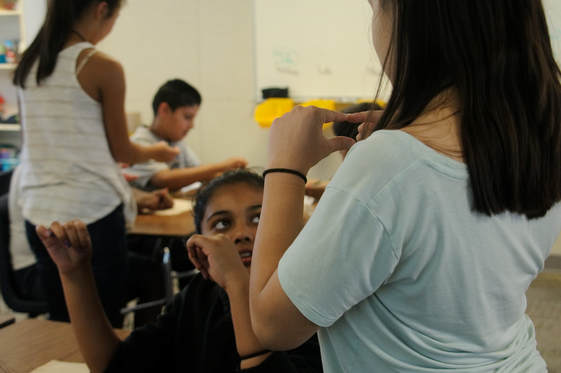
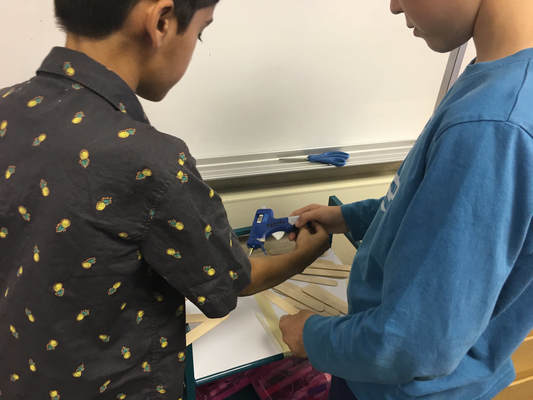
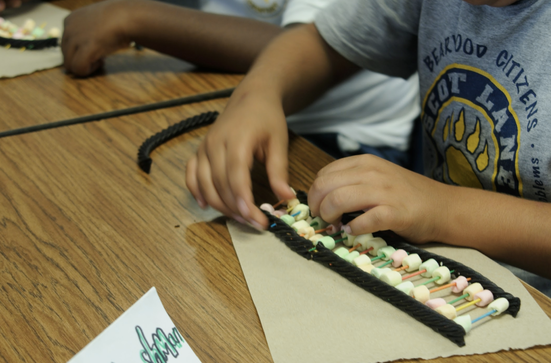
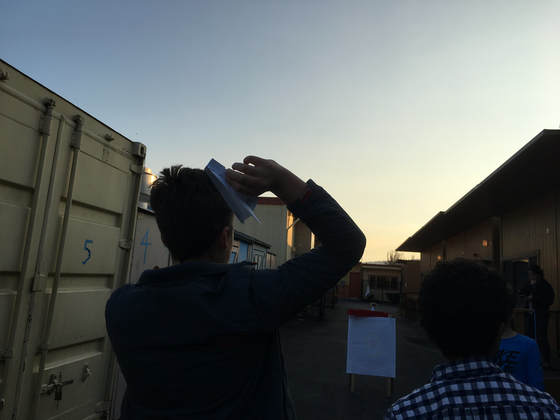
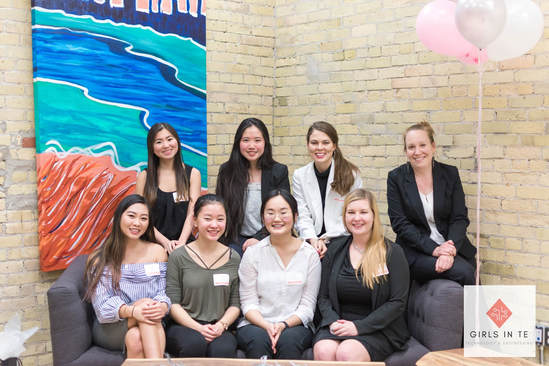
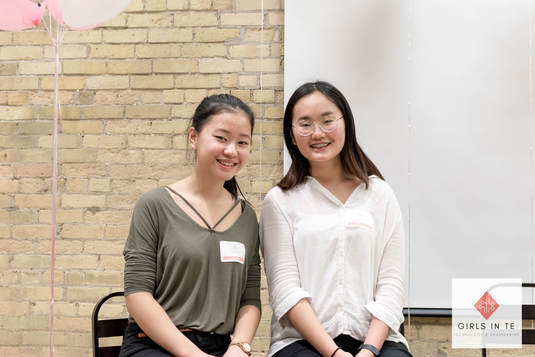
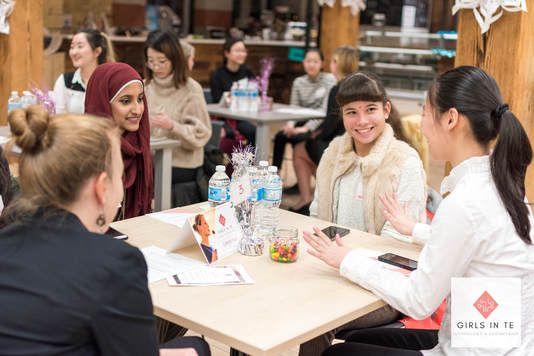
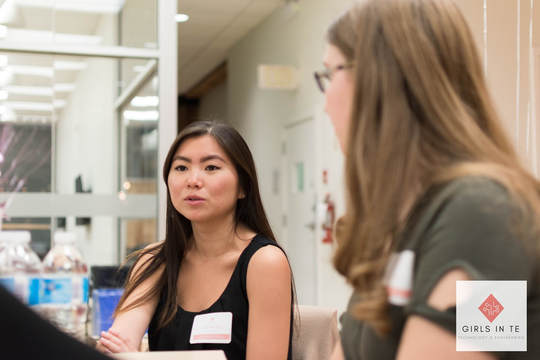
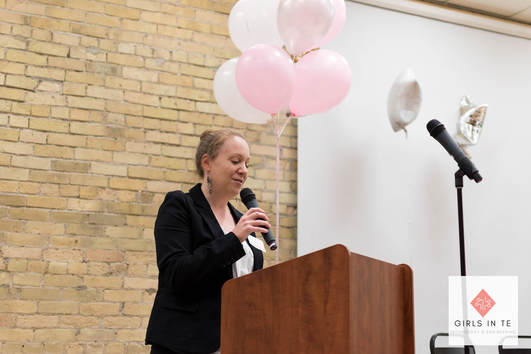
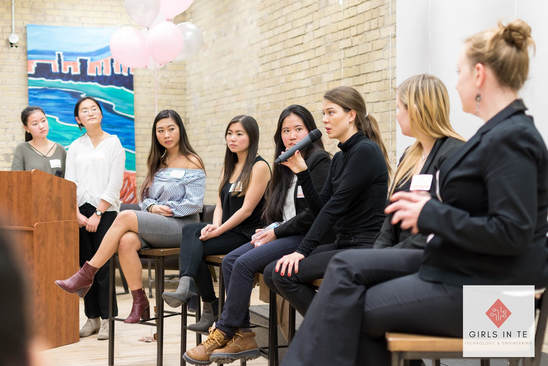
 RSS Feed
RSS Feed
